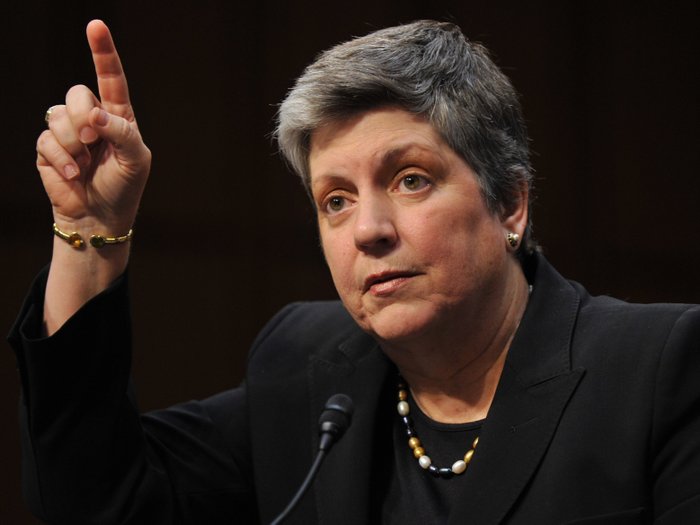
Homeland Security Secretary Janet Napolitano. | Photo Credit: Kevin Dietsch
Last week, the University of California nominated Homeland Security Secretary Janet Napolitano as its next president. It was a nontraditional choice, because Napolitano has little experience in higher education, but one factor was her background with immigration issues.
In announcing the nomination, the chair of the presidential search committee said in a statement that Napolitano has been an advocate for the federal Dream Act and the architect of the Deferred Action for Childhood Arrivals program, a policy that protects undocumented students from deportation.
However, that record hasn’t been enough to impress some immigrant advocates, including Chris Newman of the National Day Laborer Organizing Network.
“Yeah, there’s no question that she’ll lean on her record with Dreamers and students,” he said. “But that then needs to be stacked up against a record of unprecedented deportations and unprecedented criminalization of immigrants.”
He cited the record number of deportations carried out under Napolitano’s watch. She’s also overseen the aggressive national expansion of the Secure Communities program, under which police are asked to turn arrested immigrants over to federal agents.
“Does she think the campus police should be linked into the Secure Communities deportation program? And if not, why?” Newman asked.
Other national and local immigrant rights advocacy organization issued similar statements containing tepid reactions to Napolitano’s nomination.
The UC president’s office wouldn’t grant an interview, but its focus on Napolitano’s record with undocumented students suggests it expects her to further open the gates of UC campuses to that population, and not to make their lives more difficult.
The current university president has supported legislation that allows undocumented students to apply for state financial aid, and last year, UC Berkeley announced $1 million in grants for undocumented students.
Even so, as of 2011, the university estimated that fewer than 1,000 of its more than 200,000 students were undocumented.
